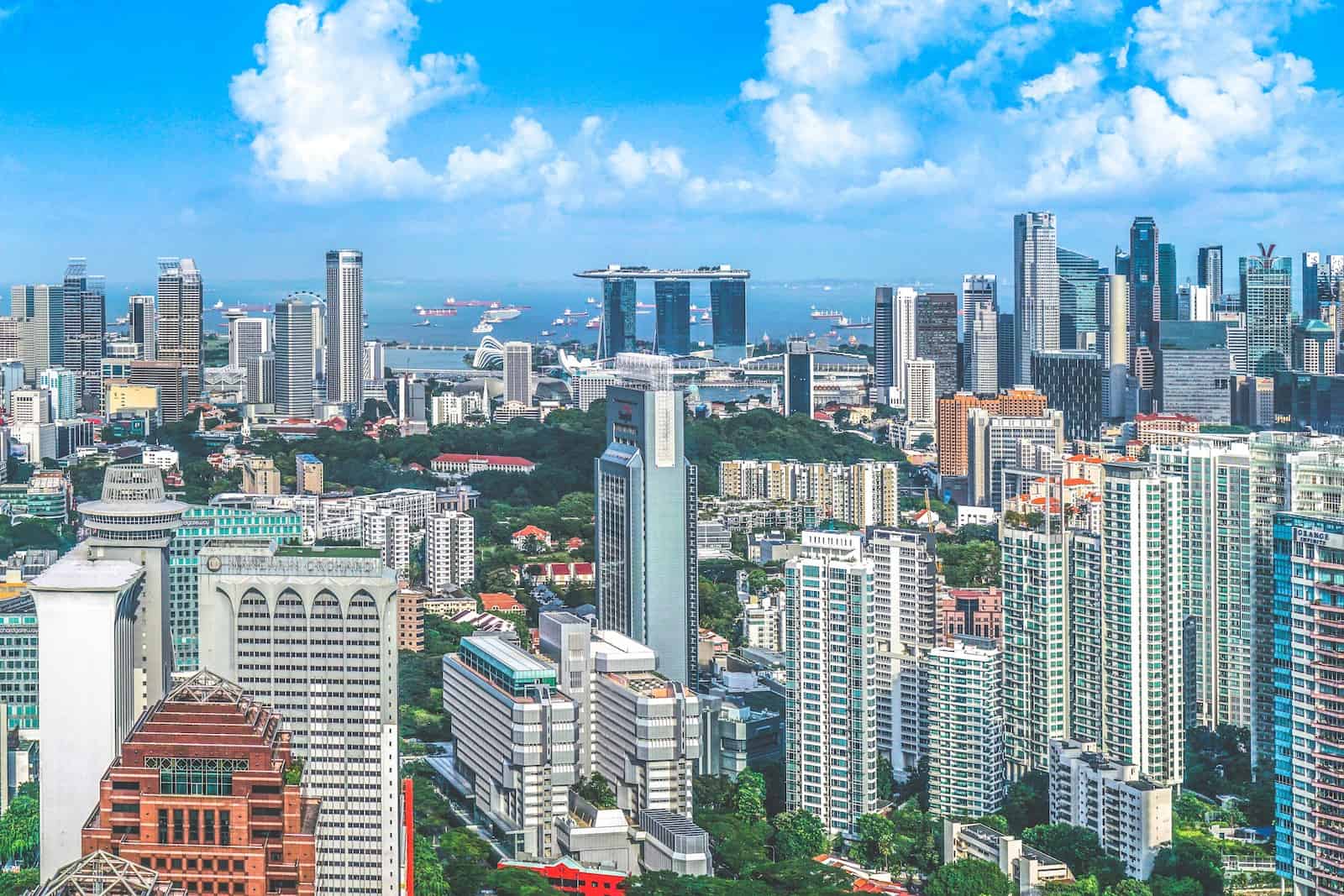Last updated on April 11, 2024
The Southeast Asia market offers significant opportunities for growth-stage tech businesses to expand. Thom Abbott, Head of SEA at the London Stock Exchange, reveals the SEA market trends that founders need to know.
The Southeast Asia tech ecosystem has enjoyed a decade-long success story, reaching a combined market valuation of $395b in 2023, according to Dealroom. Governments across SEA have made huge investments in infrastructure and funds to support tech companies, while SEA tech startups have raised close to $100b in the past 10 years, with capital, talent, and new business flowing into the region.
For Thom Abbott, Head of SEA and Pacific Business Development, Primary Markets at the London Stock Exchange, Southeast Asia is a region of significant interest.

London Stock Exchange employs 25,000 people worldwide, with more than half based in the Asia-Pacific. Out of more than 1,000 companies listed on the London Stock Exchange, 40% are international from over 100 countries, with around 180 of these companies from the APAC region.
More SEA companies are now looking to global financial markets, like the London Stock Exchange, to expand internationally and access global, sustainability-focused investors, and follow-on funding.
“There’s a real opportunity for SEA businesses to use London as a base,” Thom explains. “In Southeast Asia, we’re the conduit for companies looking to connect with advisors and future investors, supporting them both before and after they go public.”
He shares the six SEA market trends that founders need to know:
1. “We’re seeing greater cooperation across the SEA region.”
Founders expanding across Southeast Asia’s diverse markets must navigate different cultural nuances, business environments, and regulatory frameworks. But increasing alignment between governments is improving the ease of doing business.
Indonesia, Singapore, Malaysia, Thailand, and the Philippines began linking their payment systems last year, allowing cross border payments with QR codes. Plus, SEA’s largest stock exchanges have come together to establish the ASEAN-Interconnected Sustainability Ecosystem, and have published a core set of ESG metrics to encourage sustainable investments in the region. These are great first steps, and perhaps signs of more regional cooperation to come.
2. “Governments and companies are building global ties.”
Beyond cooperating with each other, SEA governments are forging closer ties internationally. The UK-Singapore Digital Economy Agreement, for example, means businesses from both countries benefit from open digital markets, the free flow of data, and guaranteed protections for personal data and IP.
Malaysia, Singapore, and Vietnam were also early signatories to the Comprehensive and Progressive Agreement for Trans-Pacific Partnership (CPTPP), the Asia-Pacific trade agreement that the UK is set to join later this year. China also remains deeply engaged in Southeast Asia and offers opportunities for SEA companies, both in terms of supply chains and the Chinese market itself.
3. “There’s growing consolidation in the market.”
Indonesia’s two biggest startups – the ride-hailing app, Gojek, and the marketplace, Tokopedia – merged to form GoTo in 2021. GoTo is now the largest technology group in Indonesia, capturing around 70% of national household consumption.
Looking forward, the economic pressures of recent years will drive a wave of mergers and acquisitions among companies in the region. Sectors primed for consolidation include payments, marketplaces, and even traditional industries like oil and gas could see companies joining forces to expand their market share and expand globally.
4. “Companies that solve real-world problems – in deeptech and healthcare – are becoming more attractive to investors.”
Founders in Southeast Asia, like the rest of the world, are balancing growth with profitability, but there is still capital ready to be deployed. Singapore semiconductor startup, Silicon Box, raised $200m in Series B funding at a $1b valuation in January 2024.
What’s changing is that we’ll see more of a push towards deeptech, healthcare, and education, as investors focus on companies positioned for long-term, sustainable growth.
Founders should focus on building companies with robust fundamentals that demonstrate social impact and a clear path to profitability. Marketplaces, fintechs, and SaaS startups still play an essential role, but funding for more speculative ventures will become harder to secure.
5. “Markets should recover later this year, but there are obstacles ahead.”
Global markets should recover towards the end of 2024. Despite a more challenging investment environment, the demographics of the region, the rising middle class, and interest from international investors mean SEA companies are set for a soft landing.
There are elections to navigate first – in the US, India, and South Korea – that could introduce new uncertainty. Southeast Asia has the strength to stand on its own two feet, but founders should prepare for potential policy changes.
6. “SEA companies are looking to international markets.”
The London Stock Exchange has one of the deepest pools of international capital of any exchange globally. SEA companies haven’t historically viewed listing on an international stock exchange as a viable option, but the wide variety of organisations that do gain access to a deeper and more diverse pool of capital.
Ocean Harvest Technology, a medium-sized company that produces animal feed additives from seaweed, has its production facility in Vietnam and used its listing on the London Stock Exchange to gain more exposure with international clients. Vietnam Enterprise Investments Limited, which listed in 2016, is the longest-running closed-end fund focused on Vietnam, and invests in listed and pre-IPO companies.
50% of the companies that listed on the London Stock Exchange in the past five years have raised follow-on capital as it’s a market that can support growth businesses to scale. London Stock Exchange also offers support for companies beyond a public listing, including data and investor relations tools. The new cross-over market initiative, supported by PISCES regulation, is unique to the UK, but open to international companies launching in Q4 2024, and will allow founders to interact with the exchange and access public markets to raise capital without a full IPO listing.
By understanding the opportunities on offer and the market forces shaping the region, founders have the potential to build the next generation of impactful, global tech companies within Southeast Asia and beyond.
Click here to learn how the London Stock Exchange can support your business.
This article is sponsored by the London Stock Exchange. Investment data is provided by Dealroom.
 All Posts
All Posts


